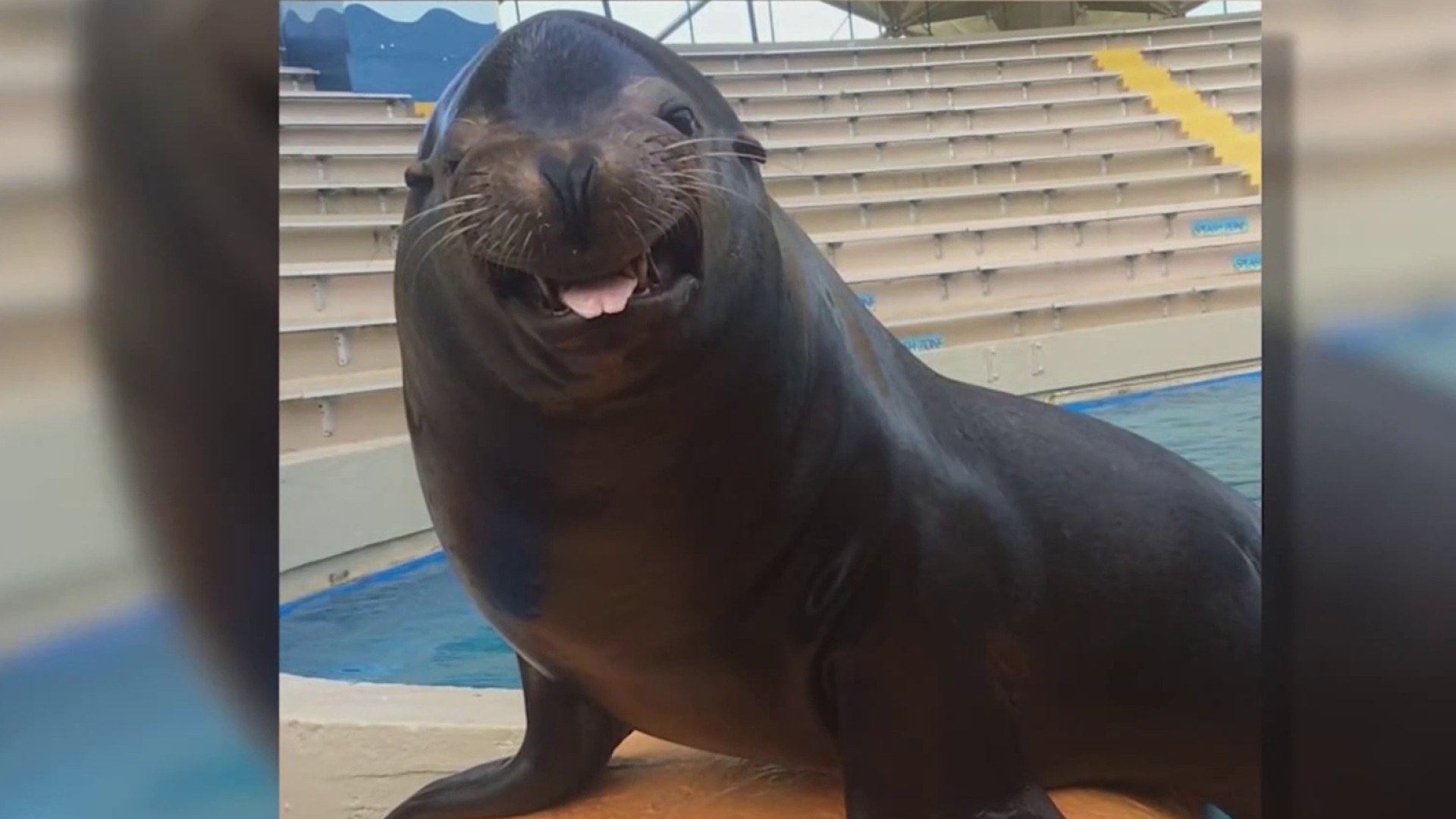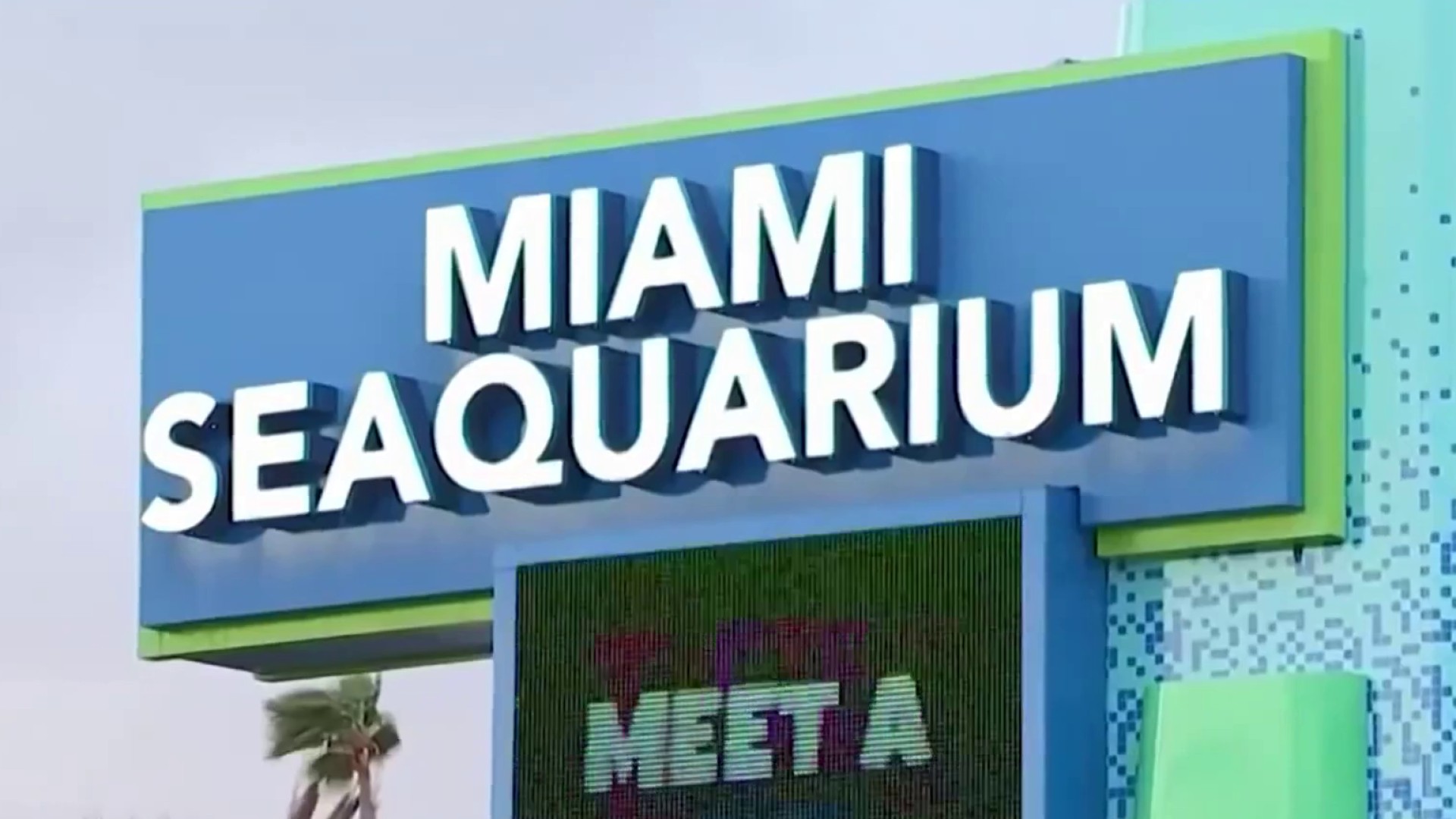The Miami Seaquarium is facing a critical deadline on April 21, with Miami-Dade County pressing eviction due to what they say are multiple compliance failures.
Recent developments have unveiled alleged severe deficiencies in both financial management and animal welfare, casting a shadow over the future of the iconic marine facility.
A recent report by the USDA has brought to light the inadequate resources available to care for the Seaquarium’s animals, particularly highlighting the tragic case of Bud the sea lion, whose death on March 28 was called a direct result of these deficiencies.
Miami Seaquarium
The Hurricane season is on. Our meteorologists are ready. Sign up for the NBC 6 Weather newsletter to get the latest forecast in your inbox.
The USDA report, obtained by NBC6 on Tuesday, details a Jan. 17 inspection of the Seaquarium that determined Bud was "one of the most critical cases at the facility."
The report noted Bud, who the Seaquarium said was considered geriatric and was suffering from kidney failure, wasn't eating his recommended amount of food and was "depressed and largely unresponsive."
"Without appropriate resources, the veterinary staff is unable to maintain the proper level of care to relieve this animal from suffering and this lapse may ultimately lead to his death," the report noted, months before Bud's death.
The report detailed other medical issues involving animals that appeared to be overwhelming staffers.
"There are several animals deemed critical by the [attending veterinarian] that require medical treatments, diagnostic evaluations, and medical procedures that are not being provided to alleviate suffering," the report said. "Because the AV has had to focus on critical cases, some of the animals have not been provided recommended routine
and preventative care for over a year."
The report said the veterinary staff consists of a single veterinarian with a veterinary assistant to care for over 45 marine mammals, 50 birds and the aquarium’s reptiles, fish, sharks and rays.
Veterinarian Crystal Heath, director of the veterinary advocacy group, Our Honor, described the report as unprecedentedly damning.
“I’ve never seen a USDA report this condemning of any marine animal facility. It’s pretty unprecedented,” Heath remarked.
Financial struggles have further complicated the situation.
Miami-Dade County on Tuesday issued a letter of non-compliance to the Seaquarium for falling behind on rent, with outstanding charges amounting to nearly $88,000.
"According to our records, as of this writing, the Seaquarium is in arrears to the County in the minimum amount of $87,916.66, representing the past due March 2024 base rent payment," the county's letter read.
Miami-Dade County Mayor Daniella Levine Cava cited a “long and troubling history of violations” in a lease termination notice sent on March 7 to the chief executive officer of The Dolphin Company, which operates the Seaquarium.
The company was told to vacate the property by April 21, according to the letter from the mayor's office. The lease was originally set to be up in 2044.
Edwin Gonzalez, Executive Director of the Seaquarium, had issued a statement on April 4, reaffirming their commitment to corrective actions aimed at addressing the issues outlined by both the county and the USDA inspections.
As the April 21 eviction deadline approaches, the Seaquarium is under significant pressure to address these critical issues promptly.
The community and animal rights activists are closely monitoring the situation, calling for immediate and effective measures to improve the conditions for the animals.
Efforts to reach the county and the Miami Seaquarium for further comments are ongoing, as the future of the facility hangs in the balance.




